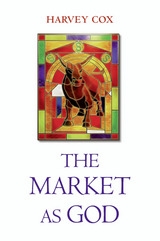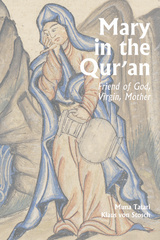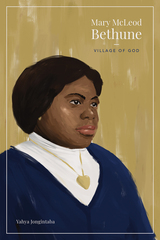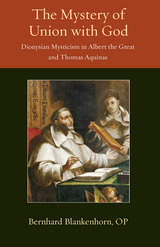5 start with M start with M

“Essential and thoroughly engaging…Harvey Cox’s ingenious sense of how market theology has developed a scripture, a liturgy, and sophisticated apologetics allow us to see old challenges in a remarkably fresh light.”
—E. J. Dionne, Jr.
We have fallen in thrall to the theology of supply and demand. According to its acolytes, the Market is omniscient, omnipotent, and omnipresent. It can raise nations and ruin households, and comes complete with its own doctrines, prophets, and evangelical zeal. Harvey Cox brings this theology out of the shadows, demonstrating that the way the world economy operates is shaped by a global system of values that can be best understood as a religion.
Drawing on biblical sources and the work of social scientists, Cox points to many parallels between the development of Christianity and the Market economy. It is only by understanding how the Market reached its “divine” status that can we hope to restore it to its proper place as servant of humanity.
“Cox argues that…we are now imprisoned by the dictates of a false god that we ourselves have created. We need to break free and reclaim our humanity.”
—Forbes
“Cox clears the space for a new generation of Christians to begin to develop a more public and egalitarian politics.”
—The Nation

An entire chapter (surah) is dedicated to her, and she is the only woman mentioned by name in the Qur’an—indeed, her name appears more frequently than that of either Muhammad or Jesus. From the earliest times to the present day, Mary, the mother of Jesus, continues to be held in high regard by Christians and Muslims alike, yet she has also been the cause of much tension between these two religions.
In this groundbreaking study, Muna Tatari and Klaus von Stosch painstakingly reconstruct the picture of Mary that is presented in the Qur’an and show how veneration of the Blessed Virgin Mary in the Roman Catholic Church intersects and interacts with the testimony of the Qur’an. This sensitive and scholarly treatise offers a significant contribution to contemporary interfaith dialogue.

Mary McLeod Bethune was born on May 10, 1875, in a log cabin in rural Sumter County, South Carolina. She was the fifteenth child among seventeen siblings but the first born free of the bonds of slavery. As a child she attended a Presbyterian mission school in nearby Mayesville and Scotia Seminary in Concord, North Carolina. After some years at Scotia she was admitted in 1894 to the Moody Bible Institute in Chicago. Her two years of training at Moody did not lead to missionary work in Africa, as she had dreamed, but to missionlike teaching positions in the South and eventually her founding, in 1904, of the Daytona Normal and Industrial Institute for Girls, in Daytona Beach, Florida. That institution would grow to the present-day Bethune-Cookman University.
In this religious biography, author Yahya Jongintaba traces Bethune’s life of service in lively prose, structuring his book in a five-part framework that organizes his subject’s life in parallel with the Lord’s Prayer and virtues identified by Bethune herself: freedom, creativity, integrity, discipline, and love. With unfettered access to Bethune’s personal archive, Jongintaba paints a picture of a mother figure and mentor to generations, a nearsaint who lived “a blameless life for four-score years.” With deep empathy and the kind of “spiritual understanding” that Bethune had despaired of finding in a biographer in her own lifetime (despite attempts by publishers and herself to find just the right person), Jongintaba endeavors to achieve in his biography what Bethune wrote that she hoped to accomplish in an autobiography that never materialized: to “give to the world the real Mary McLeod Bethune’s life as I have lived it.”

Conventional wisdom would have it that believing in one God is straightforward; that Muslims are expert at monotheism, but that Christians complicate it, weaken it, or perhaps even abandon it altogether by speaking of the Trinity. In this book, Muslim and Christian scholars challenge that opinion. Examining together scripture texts and theological reflections from both traditions, they show that the oneness of God is taken as axiomatic in both, and also that affirming God's unity has raised complex theological questions for both. The two faiths are not identical, but what divides them is not the number of gods they believe in.
The latest volume of proceedings of The Building Bridges Seminar—a gathering of scholar-practitioners of Islam and Christianity that meets annually for the purpose of deep study of scripture and other texts carefully selected for their pertinence to the year’s chosen theme—this book begins with a retrospective on the seminar’s first fifteen years and concludes with an account of deliberations and discussions among participants, thereby providing insight into the model of vigorous and respectful dialogue that characterizes this initiative.
Contributors include Richard Bauckham, Sidney Griffith, Christoph Schwöbel, Janet Soskice, Asma Afsaruddin, Maria Dakake, Martin Nguyen, and Sajjad Rizvi. To encourage further dialogical study, the volume includes those scripture passages and other texts on which their essays comment. A unique resource for scholars, students, and professors of Christianity and Islam.

READERS
Browse our collection.
PUBLISHERS
See BiblioVault's publisher services.
STUDENT SERVICES
Files for college accessibility offices.
UChicago Accessibility Resources
home | accessibility | search | about | contact us
BiblioVault ® 2001 - 2024
The University of Chicago Press









